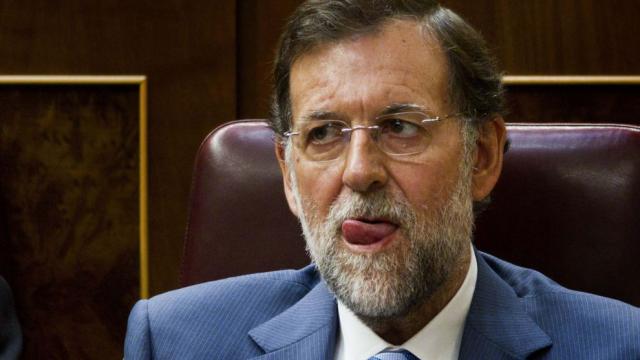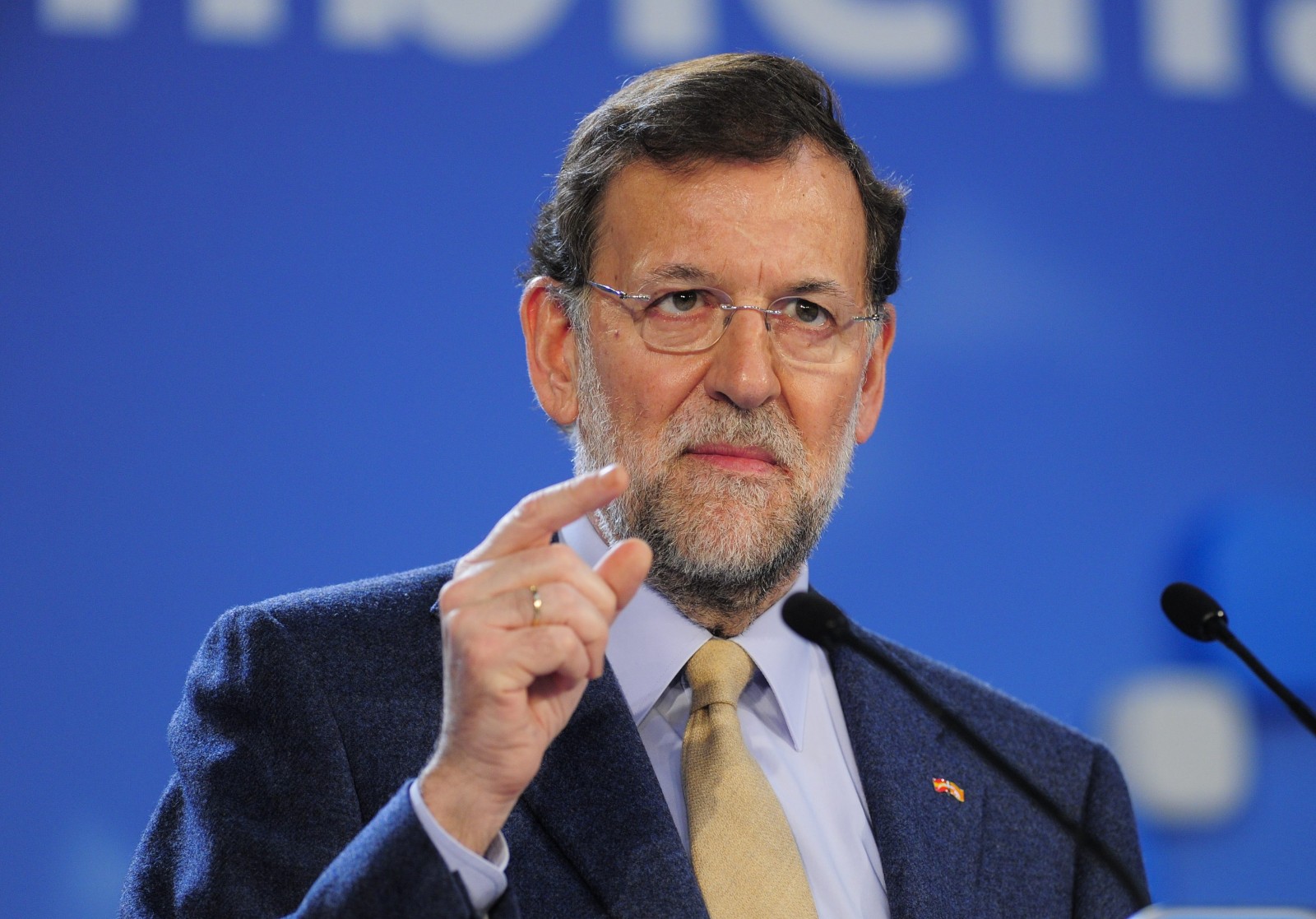
Spanish Prime Minister Mariano Rajoy rejected a growing clamor to resign over a slush-fund scandal that has rocked his party.
"I will defend political stability and I will fulfill the mandate given to me by the Spanish people," Rajoy told reporters as evidence grew he and other senior leaders of his right-wing People's Party took illegal cash payments for years from construction companies in return for government contracts.
Rajoy, who began a four-year term in December 2011, said the mushrooming political crisis would not get in the way of his economic-reform plans. His debt-plagued, bailout-teetering country is still in a deep recession, with national unemployment at 27.2 percent and youth unemployment at 57 percent.
Popular support for the People's Party dropped to 25 percent from 44 percent two years ago, a public-opinion survey the Metroscopia polling firm indicated.
People began protesting in several cities, including Barcelona, over the weekend, calling for Rajoy's resignation.
The opposition Spanish Socialist Workers' Party, known as the PSOE, said Saturday, as the scandal flared, it had broken off relations with the People's Party, known as the PP, and called for Rajoy's immediate resignation.
Some members of the PP have also called for Rajoy to step down, saying he lost moral authority to lead.
Rajoy has not been charged with any crime. He denies receiving illegal, undeclared payments.
Party Secretary-General Maria Dolores Cospedal, also accused in the scandal, also denied any wrongdoing.
"I have nothing to hide and am not going to let a suspected criminal slander or tarnish me so he can get out of what he supposedly did unscathed," she told reporters Monday night.
The "suspected criminal" is Luis Barcenas, a former party treasurer awaiting trial in jail in a criminal political-corruption probe that revealed he hid some $65 million in Swiss bank accounts.
Since January he was also alleged to have kept secret parallel ledgers to hide illegal slush money. This is the source of the scandal surrounding Rajoy.
The slush-fund money surfaced when the newspaper El Pais published copies of Barcenas' alleged secret ledgers showing regular illegal cash payments to Rajoy and other senior party officials going back about a decade.
Barcenas and party officials first denied the ledgers' authenticity.
But Barcenas, 55, admitted they were real to El Pais earlier this month and acknowledged them Monday in a closed-door meeting with National Court Judge Pablo Ruz in Madrid, the Financial Times reported.
He told Ruz the slush fund made quarterly, under-the-table cash payments topping $120,000 to Rajoy, Cospedal and other top party officials in 2009 and 2010, several people at the meeting told the newspaper.
He also revealed $65,000 in additional cash payments between 2008 and 2011, the newspaper said.
The newspaper did not say if Barcenas spoke about earlier payments.
Rajoy said publicly for months he couldn't remember the last time he had contact with Barcenas -- who he does not mention by name -- and two weeks ago denied to reporters there was any reason Barcenas would try to blackmail him.
But the newspaper El Mundo Saturday published text messages provided by Barcenas showing Rajoy was in touch with his former treasurer as recently as March. They also indicate Rajoy tried to limit the damage from the affair.
One text message, from Jan. 18, shortly after El Pais first revealed the slush fund, quoted Rajoy as saying: "Luis, I understand. Be strong. I'll call you tomorrow."
Another message, from March 6, allegedly followed phone-tag calls, first by Rajoy to Barcenas and then by Barcenas back to Rajoy.
"My cellphone was off," Barcenas says in the text message. "I was calling you back, but I couldn't reach you."
Rajoy acknowledged Monday the text messages were genuine but said they proved he didn't cave in to Barcenas' blackmail.
3 WAYS TO SHOW YOUR SUPPORT
- Log in to post comments












